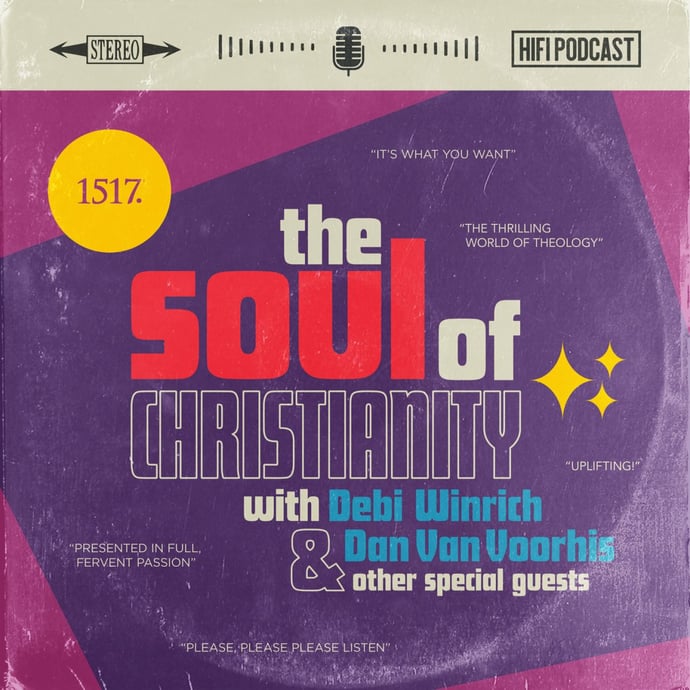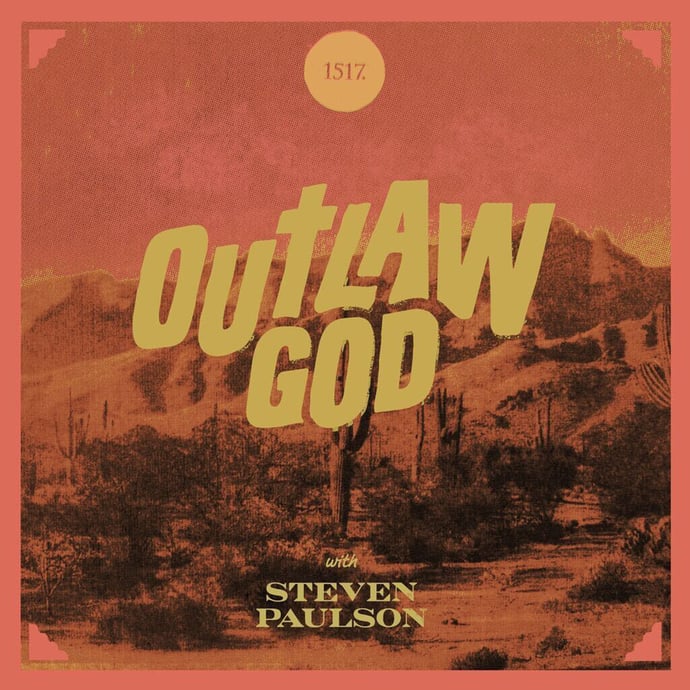Mike, Jason, and Wade, and Pr. Nathan Wordell, discuss the third chapter of Dietrich Bonhoeffer’s Ethics, Heritage and Decay.
Podcasts
Each 1517 Podcast is dedicated to delivering Christ-centered content through weekly, monthly, and seasonal audio platforms. Listen online or on your favorite podcasting app.
Author
- All Authors
- Aaron Zimmerman
- Adam Francisco
- Amy Mantravadi
- Blake Flattley
- Bob Hiller
- Bradley Gray
- Brian W. Thomas
- Bror Erickson
- Bruce Hillman
- Caleb Keith
- Chad Bird
- Chris Rosebrough
- Christopher Gillespie
- Cindy Koch
- Craig Donofrio
- Dan van Voorhis
- Daniel Deen
- Daniel Emery Price
- Darrin Sheek
- David Andersen
- David Rufner
- David Zahl
- Debi Winrich
- Delwyn Campbell
- Donavon Riley
- Doug Klembara
- Edward Killian
- Elyse Fitzpatrick
- Erick Sorensen
- Flame
- Grant Klembara
- Gretchen Ronnevik
- Haroldo Camacho
- Jacob Smith
- Jared C. Wilson
- Jeff Mallinson
- Jeffrey Pulse
- Jessica Thompson
- Jim Nestingen
- Joel Fitzpatrick
- Joel Hess
- John Andrew Schreiner
- John Bombaro
- John T. Pless
- John W. Hoyum
- John Warwick Montgomery
- Katie Koplin
- Kelsi Klembara
- Ken Sundet Jones
- Magnus Persson
- Matt Popovits
- Michael Berg
- Michael Horton
- Nick Lannon
- Paul Koch
- Peter Nafzger
- Philip Bartelt
- Raleigh Sadler
- RJ Grunewald
- Robert Kolb
- Rod Rosenbladt
- Ron Hodel
- Sam Leanza Ortiz
- Sarah Condon
- Sarah Crowder
- Scott Davis
- Scott Keith
- Steven Paulson
- Tanner Olson
- Troy Neujahr
- Uwe Siemon-Netto
- Wade Johnston
- William Cwirla
-
In episode TWO HUNDRED AND EIGHT, Mike, Jason, and Wade, and Pr. Dan Lindner and Pr. Nathan Wordell, discuss the second chapter of Dietrich Bonhoeffer's Ethics, Ethics as Formation, as well as campus ministry.
-
In episode TWO HUNDRED AND SEVEN, Jason and Wade discuss theology and philosophy in the light of the first chapter Dietrich Bonhoeffer's Ethics and how neither can address the whole person apart from the incarnate Christ, who is the reality behind both the church and the world, so that the Christian can no more retreat from the world than the unbeliever can be whole apart from Christ.
-
The Soul of Christianity is back with a new season about the Christian life.
-
In this episode we continue our talk with author and therapist, Heidi Goehmann, about facing our emotions.
-
What if you could have a conversation with someone who was theologically sound, a great communicator, and an experienced licensed therapist to talk about the emotions we struggle with, and what to do with them?
-
In episode TWO HUNDRED AND THREE, Mike, Wade, and Jason continue their discussion of Helmut Thielicke’s A Little Exercise for Young Theologians. The guys think the book is worth reading, not only for young theologians, but all theologians, laity and the ordained.
-
When it comes to the theology of the body, it's interesting to consider the fight against aging.
-
We continue our conversation with Nancy Guthrie and how life changing it can be to find Christ in the Old Testament--and not just in the prophecies. It's transformative, and as she would say, there's nothing more practical.
-
In this episode, Gretchen and Katie talk about anticipating seasons in our lives, as well as looking back with nostalgia--for good or for bad.
-
We asked Chad Bird about what it means to wrestle with God. Later this summer, he's coming out with his book on Jacob: "Limping with God." Our discussion went from Jacob being renamed to "Israel" which means "wrestles with God" and how wrestling with God was a keyhole to the crucifixion.
-
The culmination of our episodes on ontology and time is declaring that you are free to be.



